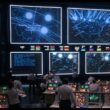Where realism fails
By Mansour Salsabili, June 24, 2013
My colleague Ehud Eiran argued in his first essay that "the seeming failure of the WMD-free zone initiative carries negative but not disastrous consequences for the nonproliferation regime." I wrote in my own first essay that cancellation of the 2012 Middle East WMD-Free Zone Conference was not the end of the world — but I do believe that the seeming failure of the overall initiative carries disastrous consequences for the nonproliferation regime. A warning sign came on April 29 when Egypt’s delegation walked out of a preparatory committee meeting for the 2015 Review Conference for the Nuclear Non-Proliferation Treaty. But that is only a small indication of the frustration that parties in the Middle East feel about the cancellation of the 2012 conference. The frustration is likely to become more obvious as nations coordinate their approaches to the 2015 Review Conference. In addition, countries in the Middle East are now increasingly likely to sign nuclear contracts with firms — Russian, French, South Korean, Canadian, or even Chinese — that may be less restrictive than US companies about the transfer of enrichment-related technologies.
Throughout his essay, Eiran explicated a realist point of view that I believe is ill suited to the establishment of lasting security in the Middle East and is too restrictive to address all aspects of a WMD-free zone. Israeli realists harbor strong feelings about the military dimensions of a multilateral disarmament pact, but no state can achieve its goals solely through pursuit of self-interest. If the Middle East is to transform itself from a region characterized by enmity to one characterized by friendly relations, states must be willing to work together through multilateral institutional channels. They must be willing to revise long-held notions of what their regional interests actually are. Ultimately, they must be willing to forge new identities — identities not based on opposition to other states. For now, the process toward establishing a WMD-free zone is the only regionally and internationally accepted vehicle that might lead toward such a transformation.
A realist might be expected to perceive a WMD-free zone, with its constraints on state action, as an annoyance. But the zone would be more than that. It would be the outcome of joint decision making, an expression of participants’ common interests. States engaging in negotiations would come to share certain values and obligations with other nations. And realists might in any event find participation in the WMD-free zone process more rewarding than they expect: Through negotiations, they would have the chance to maximize state interests, or gain concessions from others in exchange for concessions made.
Dark, not hopeless. The whole point behind the 2012 conference was that it might help the Middle East adapt the global norm of disarmament to its own purposes. By supporting UN resolutions since 1980 in favor of establishing a nuclear-weapon-free zone in the region, Israel has also supported that norm. But by standing in the way of the 2012 conference, Israel now suggests that its highest priority is maintaining nuclear superiority.
That would seem to darken very seriously prospects for a WMD-free zone. But Jaakko Laajava, facilitator of the process, still has another card to play. If the United States, Israel’s main ally and a sponsor of the conference process, cannot persuade Israel to participate in a conference, Laajava could extend his diplomacy to the public realm, and perhaps through public pressure induce Israel to participate. Then again, not every player must necessarily be included. As has been pointed out by Hans Blix, former director general of the International Atomic Energy Agency, Israel’s absence from a conference would present significant drawbacks — but could also eliminate roadblocks.
Topics: Nuclear Weapons, Technology and Security
Share: [addthis tool="addthis_inline_share_toolbox"]














